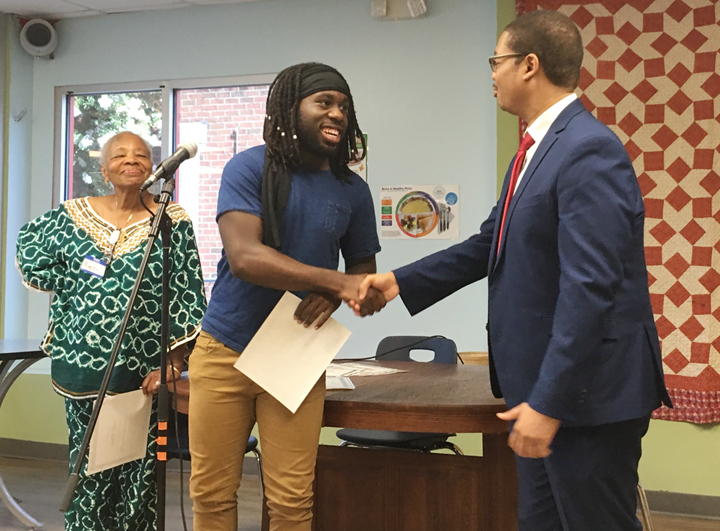 Graduates of the spring session of the Modjeska Simkins School picked up their diplomas on Saturday, cheered on by family and friends who gathered to help them celebrate. If past classes are any indication, the ceremony did not mark the end of their activist education, but a new beginning.
Graduates of the spring session of the Modjeska Simkins School picked up their diplomas on Saturday, cheered on by family and friends who gathered to help them celebrate. If past classes are any indication, the ceremony did not mark the end of their activist education, but a new beginning.
“We have been so impressed with the graduates of the last three sessions,” said Network Director Brett Bursey, who led the class with Claflin University professor Dr. Robert Greene. “Their level of enthusiasm and engagement has exceeded our expectations. The whole idea is for them take what they’ve learned back into their schools, organizations, and communities. And it’s working.”
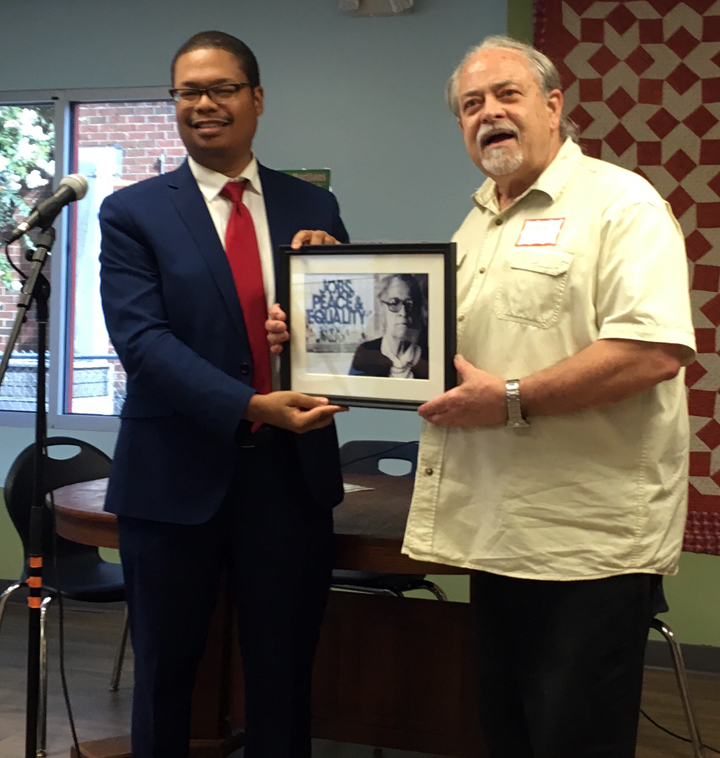 In the final class, students talked about how they planned to put to good use what they had learned. Some joined existing projects; others will create and collaborate on new ones. Past graduates have gone on to launch a podcast; revive a feminist group in Columbia that is spearheading plans to ratify the ERA in SC; conduct tours that revisit the historical narratives of the monuments in the state’s public spaces; and grow a vibrant youth organization—the New Legacy Project—that has been compiling a State of the Youth Report. Several former students now serve on the Network’s executive committee. Others are volunteering with local nonprofits and community groups.
In the final class, students talked about how they planned to put to good use what they had learned. Some joined existing projects; others will create and collaborate on new ones. Past graduates have gone on to launch a podcast; revive a feminist group in Columbia that is spearheading plans to ratify the ERA in SC; conduct tours that revisit the historical narratives of the monuments in the state’s public spaces; and grow a vibrant youth organization—the New Legacy Project—that has been compiling a State of the Youth Report. Several former students now serve on the Network’s executive committee. Others are volunteering with local nonprofits and community groups.
The course isn’t easy. It includes challenging reading assignments and difficult discussions. Students meet every other week for two-hour sessions, which sometimes go long. This session ran from March 18 through June 29, with optional workshops on certain Sundays. Guest lecturers included Chief Andy Spell, Lewis Pitts, Dr. Bobby Donaldson, and Louis Burke.
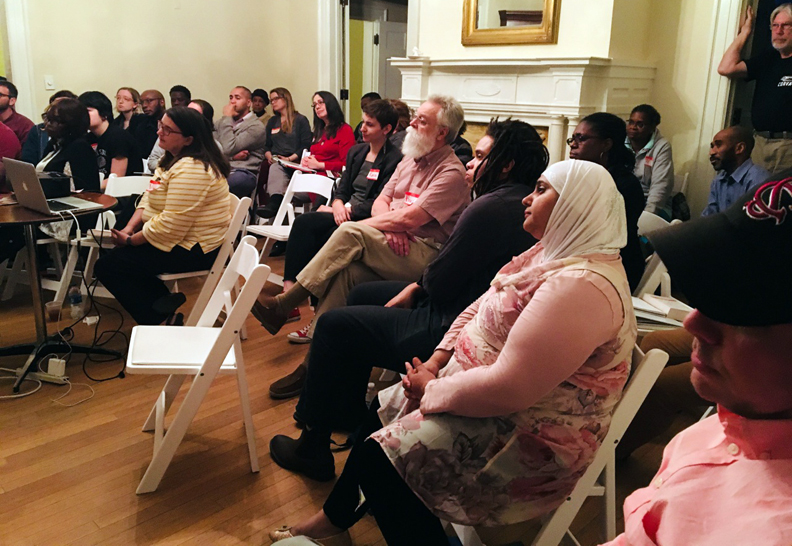 The curriculum is both practical and academic. The first classes teach the history of South Carolina that students didn’t learn in school. The last classes offer the practical tools and resources for successful grassroots organizing in South Carolina.
The curriculum is both practical and academic. The first classes teach the history of South Carolina that students didn’t learn in school. The last classes offer the practical tools and resources for successful grassroots organizing in South Carolina.
After graduation, Melanie McGehee shared with her friends on social media, “Honestly, of the times I’ve left somewhere with a ‘certificate,’ this is the one I’m proud of. It’s a different sort of feeling, but I like it.”
Her 13-year-old son Ian also earned a diploma. He was the youngest of the group, and we wondered whether he could handle the material. We were wrong to worry; see clip from orientation.
During the last class, when discussion turned to why students took the course and why we do the work we do, Dr. Greene said, “Our story is not over, but it can turn out any number of ways. I used to be an optimist, but then I pursued a PhD in history. What I’ve learned, what I’ve read about and written also gives me a sense of hope, not a plastic, fake hope that everything will be okay tomorrow. But if we do the work that needs to be done here and now, then if I’m lucky enough to have kids and grandkids, I can tell them we did the best we could and we helped make a better world for you. The alternative is that we let you guys down.”
See more of Dr. Greene’s remarks in this clip.
A few students share some thoughts in this clip.
Congratulations to all the graduates (including those not pictured here): Catherine Adams, Preston Anderson, Vivian Anderson, Molefi Askari, Russell Cody, Johnaca Dunlap, Judy Franchini, Chris Gardner, Melanie Griffin, Marjorie Hammock, Eva Keith, Vince Matthews, Ian McGehee, Melanie McGehee, Norman Miles, John Miller, Laura Nicklin. Myllasa Riggins, Tayyaba Sadiq, Jordan Wiggins, and Emily Wilson.
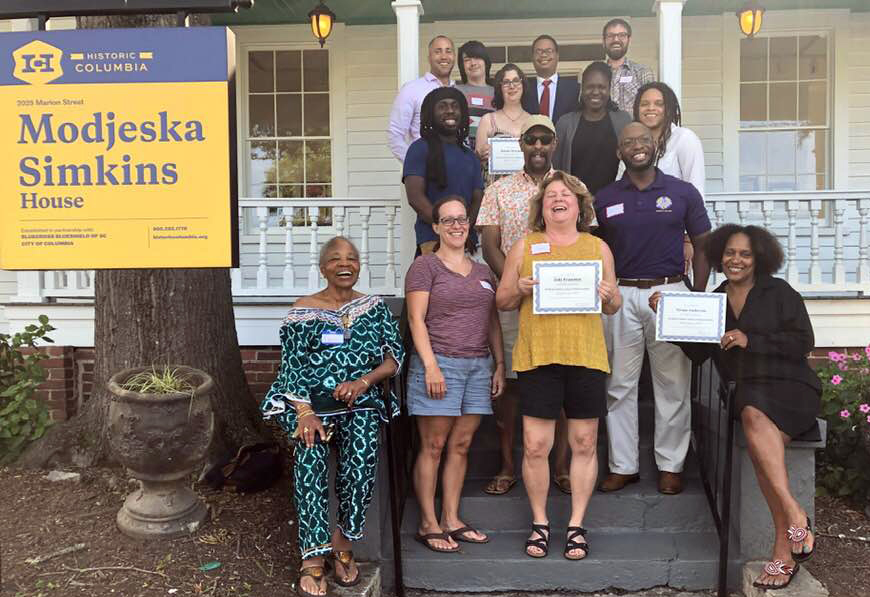 Ms. Modjeska Monteith Simkins would be proud.
Ms. Modjeska Monteith Simkins would be proud.
See more photos from the spring session in our online album.

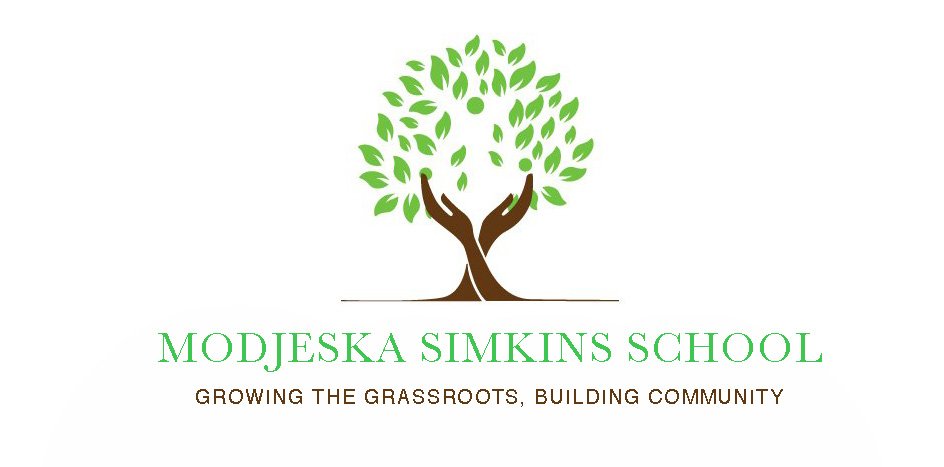
Congratulations on your consistency in Progressive and Popular Educational work among young activists in South Carolina. This endeavor is grounded in the seminal challenge and tradition of the early Call of the Southern Negro Youth Congress (SNYC) and raised by the young activists who held a Congress in Columbia, SC in 1946. Best wishes for your continued success in Radical Popular Mass Education.